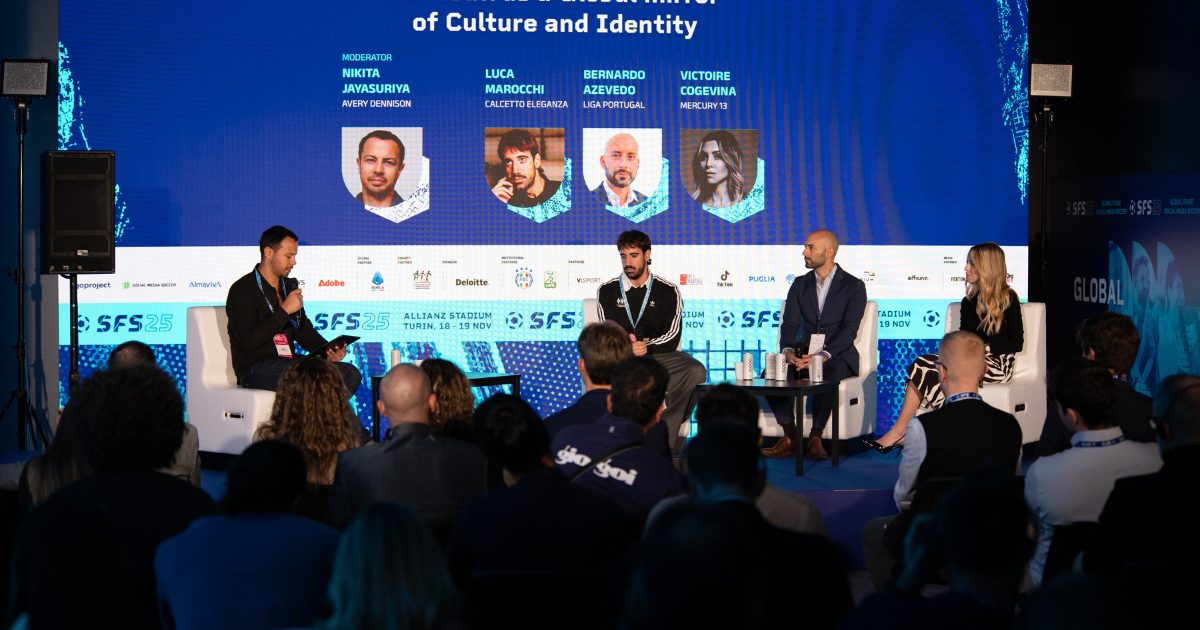
Football, Identity and Brand Revolution: The Future Runs Through Personalisation and Storytelling
The third panel of the day on the Global Stage focused on the relationship between football, identity and culture, featuring Luca Marocchi, Victoire Cogevina and Bernardo Azevedo, General Manager of Liga Portugal, moderated by Nikita Jayasuriya.
The discussion explored the role of football as a builder of identity, both in the men’s and women’s game. According to Victoire Cogevina, the social potential of the sport is still evolving: “Only time will tell, but I believe football is a platform for social change. We can elevate the women’s movement to the same level as the men’s one. Everything in football has been designed for men; our challenge is to redesign this world through a woman’s perspective, to speak to a broader audience.”
For Luca Marocchi, football is a language that goes far beyond what happens on the pitch: “Every element of football can be interpreted and enhanced in different ways. Our team tells football stories through many formats, and clubs are doing this increasingly well. We’ve seen collaborations like Palace with Adidas and then with Nike: partnerships are essential for progress, in every sector.”
From the perspective of Liga Portugal, Azevedo highlighted the strong football culture in the country—alongside an ongoing challenge: “The issue in our league is that, despite huge passion, not many people go to the stadium. That’s why we invest in partnerships that help us reach fans and make the league more appealing to the entire community.”
The panel emphasised how everything surrounding football—jerseys, symbols, visual identity—contributes to a broader storytelling narrative that reflects the identity of the fans. This dynamic is becoming central in women’s football as well, which is rewriting long-standing norms. The acquisition of Como Women by Mercury 13 marked the start of a complete rebranding, rooted in local identity and a more elegant, feminine aesthetic. “With our innovation we want to go beyond football,” said Cogevina. “Through our rebranding and the arrival of Alisha Lehmann, we achieved collaborations with GQ and Vanity Fair. We aim to enter the luxury world while giving fans unique experiences linked to our jerseys.”
Personalisation emerged as a key theme for the future of clubs. The use of NFC and digital tags is helping teams strengthen their connection with supporters. Azevedo announced a major initiative: “Starting next year, Liga Portugal will allow fans to choose their club’s third kit. We aim to become the most digital and fan-connected league in the world.”
Closing the panel, Marocchi reiterated the direction in which the industry is heading: “Personalisation is the future of football and sport. The future of football lies in bringing fans ever closer to the team, even through graphic identity and all elements of the brand.”



